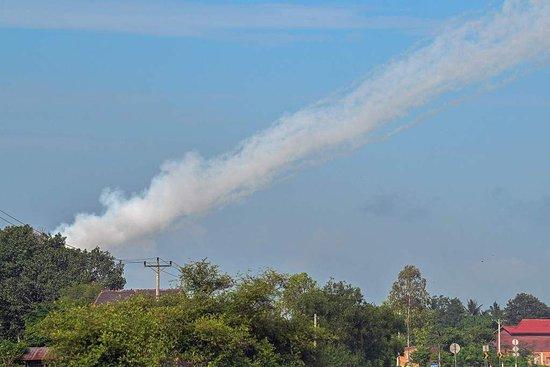
On July 26th, local time, the Royal Thai Army Intelligence Agency sent formal letters to 26 countries through its foreign military attaché channels. The letters stated that the Cambodian army was the first to initiate an attack, targeting Thai civilians, communities, and hospitals, severely infringing on Thailand’s sovereignty.
The recipients of these letters included the United States, China, Russia, France, the United Kingdom, Germany, Australia, Japan, South Korea, Turkey, Pakistan, Canada, New Zealand, Switzerland, Belgium, Italy, Belarus, and ASEAN countries among others.
Not only did the Cambodian army open fire first, but it also illegally planted anti-personnel mines in Thai territory, violating the Ottawa Mine Ban Convention, resulting in amputations of two Thai soldiers and multiple injuries.
Before the issuance of the letters, the Royal Thai Army Intelligence Agency had already convened a meeting with foreign military attachés at the headquarters to provide detailed updates on the progress since the conflict erupted on July 24.
During the meeting, the Thai military reiterated their commitment to the bilateral relationship and international obligations with Cambodia, insisting on resolving disputes through communication mechanisms at all levels, including the Joint Border Committee (JBC), Regional Border Coordination Conference (RBC), and General Command level dialogue (GBC), to cool down the situation.
During the meeting, foreign military attachés and representatives expressed concerns about the situation and hoped for a quick resolution through diplomatic negotiations between the two sides, expressing their willingness to fully support the efforts of the Thai military.
On the night of July 25th, local time, the Cambodian Ministry of Defense issued a statement saying that on July 24th, Thailand launched an intentional, unprovoked, and illegal military attack against Cambodia. (CCTV Li Min)